What happens six weeks after a First Amendment Activist and members of Amnesty International and the American Library Association have a conversation in the 80’s? What were they fighting for? And who is winning that war over 40 years later?
The 80’s gave us Banned Books Week. They were fighting “to teach the importance of our First Amendment rights and the power of literature, and to draw attention to the danger that exists when restraints are imposed on the availability of information in a free society.” Women, minorities, queer people, ideas, and the first amendment seem to be losing the fight right now.
The List Grows
Like rape, only a fraction of the challenged books are reported. But here is where we are currently according the American Library Association. 4,240 book titles were targeted for censorship in 2023. This is a 65% surge over 2022 numbers. There is also 1,247 demands to censor library books, materials, and resources. Pressure groups focused on public libraries and school libraries. The number of titles targeted for censorship at public libraries increased by 92% over the previous year, accounting for about 46% of all book challenges in 2023.
What does all of this mean?
Books are losing to hate.
But this is Fem Friday so we’re going to take a look at some of the amazing women who have written some of the most challenged books over the decades.
Judy Blume
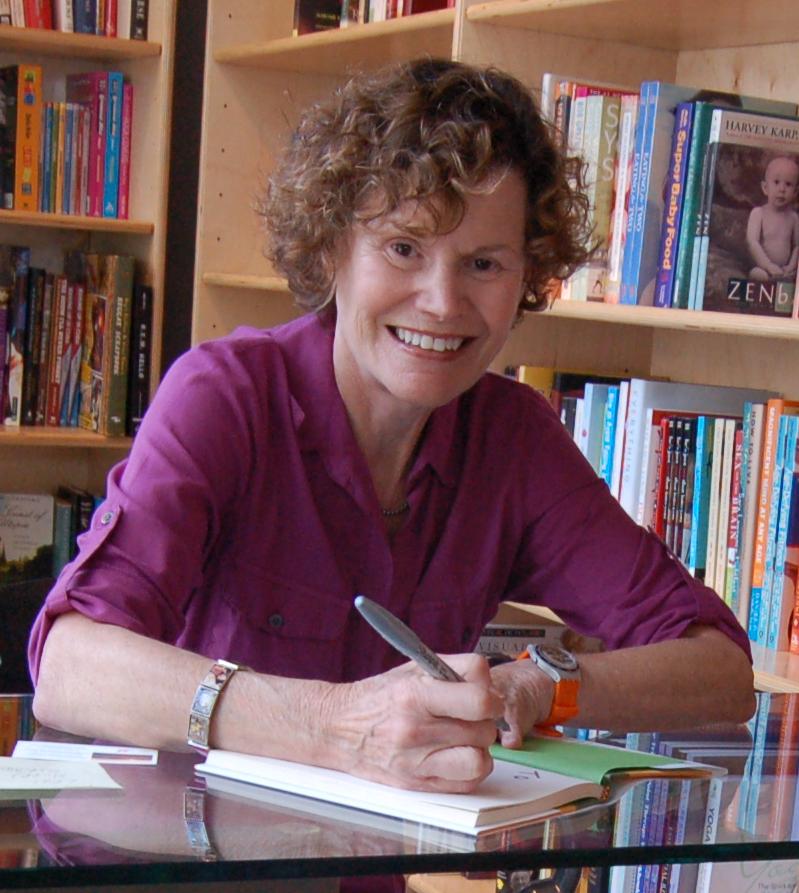
Judy Blume has written 26 novels in her life, won over 90 literary awards which includes the American Library Association (ALA)’s Margaret A. Edwards Award in 1996 for her contributions to young adult literature, the Library of Congress Living Legend and awarded the 2004 National Book Foundation medal for distinguished contribution to American letters.
The book she is most known for is also one of the most banned books over the decades. “Are You There God? It’s Me, Margaret.” Millions of young girls spanning generations have been impacted, moved and comforted by this book.
In conversations with women of 3 generations that I spoke to in preparation for this article it took the edge off getting periods, buying bras, and puberty with relatable and biting humor. I am a cisgender male and I while I relate to puberty, classmates who were girls and assigned female at birth were experiencing something that I could not relate to in a world where parents and others do not talk about these poignant events.
I read the book out of curiosity in my 50’s. Wish I had the emotional intelligence to read it when I was younger. I would have been more empathetic to my female classmates in middle and high school. A glimpse into this experience would have made me a better friend and partner.
But this is exactly why the book has been on the chopping block so many times. It was considered “sexually offensive,” “immoral,” and “profane.” At the center of these accusations? Menstruation.
Margaret Atwood
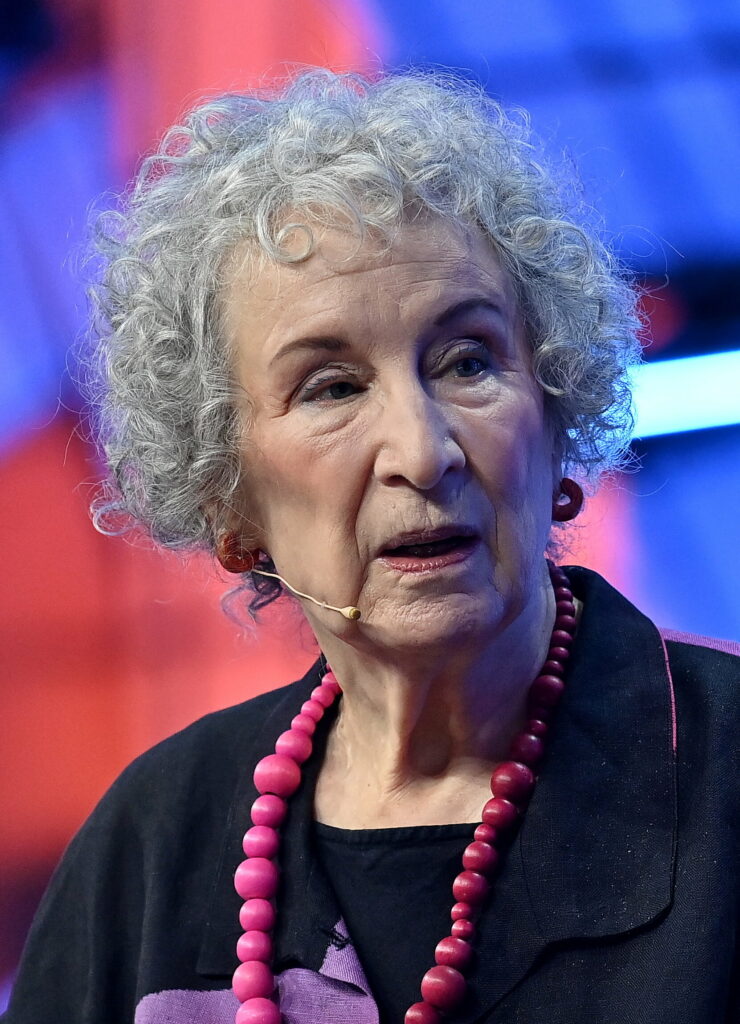
Margaret Atwood is an award winning author who has published 18 books of poetry, 18 novels, 11 books of nonfiction, 9 collections of short fiction, 8 children’s books, 2 graphic novels, and a number of small press editions of both poetry and fiction. Some of her works have been adapted to the big and small screen.
But the book she wrote in the 80’s that she is best known and, unironically, most banned for, is “The Handmaid’s Tale”.
The book gives us the story of a handmaid who is stuck in a society where her only purpose is to conceive. The Handmaid lives in a not so distant future New England where the new Christian government of Gilead has strict control on women’s bodies and reproductive rights.
The future world she created felt so real when she published it in 1985 because it was based on history. Atwood amalgamated things that have happened in our history into a future that in some ways we are seeing come true in a very eerie and terrifying manner.
The themes in this book is freedom, oppression, and what happens when we allow apathy to normalize horrors until it is too late to reverse course. It never celebrate sexual assault and the reduction of women, but it does show the horrors of something that has been experienced and continues to be experienced by victims all over the world every day.
So why does it get banned again and again?
Vulgarity and sexual overtones. Loss of freedom and autonomy is vulgar. Rape is violence, power, and control as opposed to “sexual overtones”. It is a subject that affects more than 400,000 in the US every year.
As protections under Roe have been lost to Dobbs, it is a book that is important.
Angie Thomas
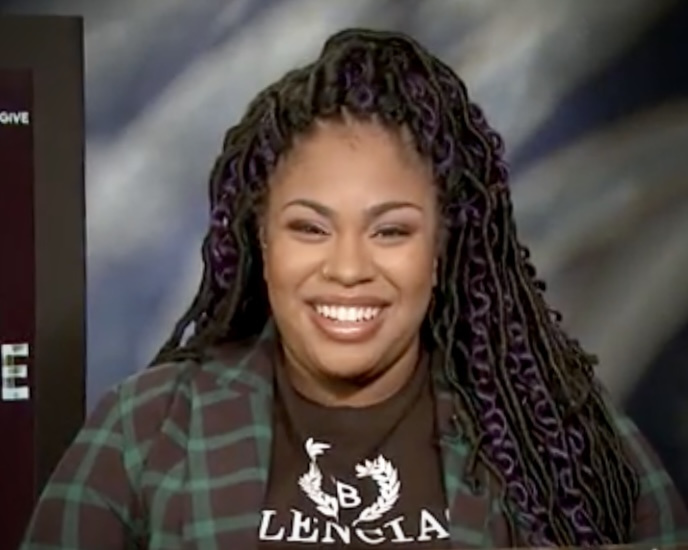
Angie Thomas is a more recent entry to the alumni of banned female authors. With only five books to her name she has already created a name for herself in the hearts of millions of young people and a villain to those who hate easily.
Her 2017 debut novel, “The Hate You Give” hit #1 in the New York Times Bestseller list in YA fiction. The following year it was made into a major motion picture. Beloved and vilified almost instantly.
The book takes us into the world of Starr Carter, a 16-year-old black girl from a poor neighborhood who attends a private school in a rich and white neighborhood. Starr witnesses a white police officer shoot and kill her childhood friend, Khalil. Starr is not silent and finds herself in the middle of a national news story that culminates in a riot when a grand jury fails to do the right thing.
Why is this poignant, beloved and timely story a banned book?
The excuses cited are drug use, profanity, and language. But in a time when this story is not fiction in our reality and black lives do not matter to a large demographic, there is likely more to it than that.
As a white middle aged man, the book moved me and forced me to face my own privilege and bias when I see stories like this in the news.
The List Has Many More Women
I’ve already written about the most banned author and book in the Fem Friday we did on Dr Maya Angelou. But over the 42 years we have started paying attention to banned books, countless female authors are on that list. They are writing important stories about important topics that need to be read and celebrated.
It is not just women. Last year’s top ten banned books shows a disturbing and rising trend. Queer topics are being banned. 7 of the current top 10 are being banned for LGBTQIA+ content. Over half the authors are women or genderqueer.
Gilead is not just after the libraries. They are targeting minorities, women, and queer people for a pure society free of thought and speech.
There are some that will tell us that these books can be bought in stores and do not need to be in libraries. But that is a thought of privilege. Libraries allow the opportunity for these important stories to be accessible to everyone.
Ben Franklin often bragged in Europe that the common library where Americans meet make them wiser and more broad in their thought than the highest European aristocrat. Our access to books is what led to our innovation and the parts of us that are noble, strong, and good. And to those who would argue that books in libraries should be agnostic of all controversy are missing the point of banned book week.
In 2009, Amnesty International spoke of the importance and purpose of Banned Book Week by stating it stresses the importance of ensuring the availability of those unorthodox or unpopular viewpoints to all who wish to read them and the requirement to keep material publicly available so that people can develop their own conclusions and opinions.
The international campaign also notes there are individuals who are “persecuted because of the writings that they produce, circulate or read.”
If these materials are only available to those who can afford books and there is no third place for us to gather in the public square, then we take steps back in social, intellectual, and scientific innovation.
Why Freedom Is Losing
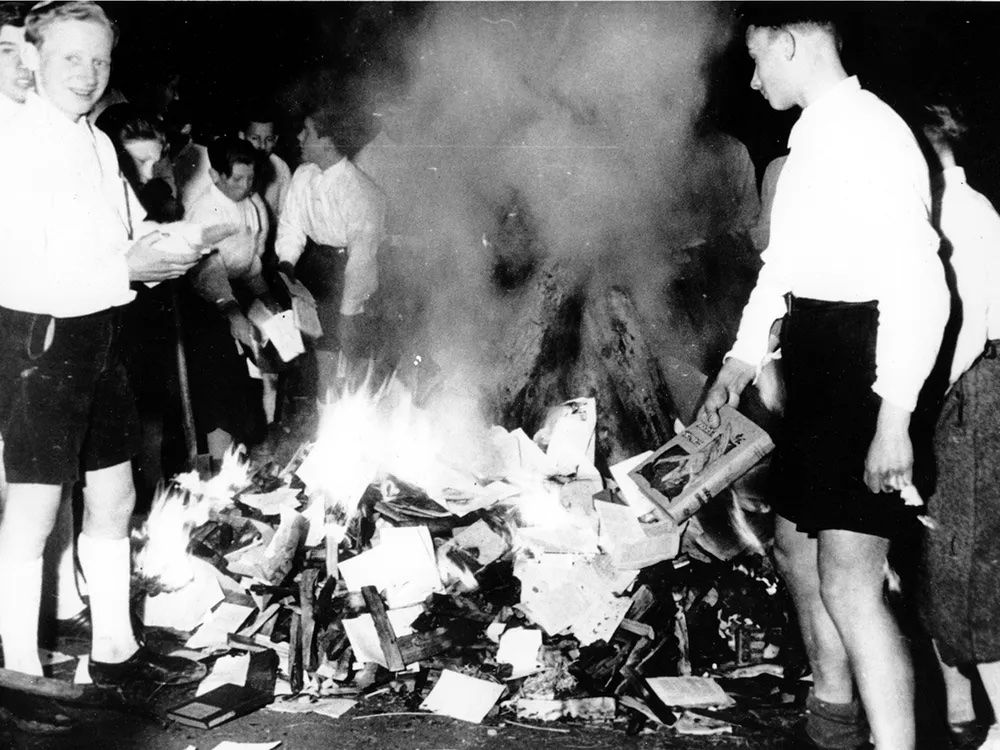
The short answer is conservatives and groups like Mom’s for Liberty show up. They show up to the polls in local and state elections that elect people who make this possible. They show up at school board meetings, churches, demonstrations, town halls, and other key events.
Finally, they are also organized. Anyone who has read Project 2025 knows this. This is a nationwide, organized, and well-funded campaign by Christian Nationalist organizations trying to remove materials that legitimize the mere existence of people of color and the LGBTIA+ community.
Banned books week is a rallying point to show what is at stake and what can be done. It has been for 42 years. But as things are heating up for loss of more and more books, it is obvious who is and who is not showing up.
So what can be done? What has to be done? Banned Books Week is coming to an end but there are a lot of things people who value books, people and ideas can do all year long.
Show Up
Show up to the polls. We talk about voting every 4 years and less of us show up in the “off years”. But it is the local and state elections where the smallest changes make the biggest difference. Vote local and make sure you know the positions of those who want to run for library boards in your local library.
Show up to the library. The library is only as healthy in your community as it is used. For your next read, do not go to Amazon or a big box store. Want to see a movie? Check it out. Go to the seminars provided, make a copy or print of something, make it your first stop if you need a notary. The more people that are using the library, supporting the library, and loving the library, the more essential it will be to your community.
Not all the sources used in Gen X Watch are archived online. Three of the libraries near me have helped us find the articles we need to research the issues we write about. Many times if a source cited does not have a hyperlink, it is because it is not available online. And to get that magazine article written more than 30 years ago, a librarian was needed.
If you have not been to your local library lately, they are amazing places. One near my home has 3D printing labs and video and audio studios for creators and creatives to use…for free.
Show up to the school board meetings. Mom’s for Liberty and local churches are mobilizing and flooding the school board meetings ensuring the schools are sanitized of diversity, history, and opportunity to grow. If a fraction of the people who meme about being a childless cat lady or how cool banned books are showed up to school board meetings, groups like Mom’s for Liberty would be outnumbered and see the power of a community that shows up.
Show up even if you can’t physically. I am becoming increasingly aware of how ableist my mindset is and how ingrained it is to our culture. Not everyone can “show” up in person to every thing for a variety of reasons. But you can be a part of this fight too and we need you! You can show up by writing letters and emails to elected reps, school boards, newspapers, and other spaces where your words will be read and taken seriously. This is not being on the back end in supporting the rest. Letters, emails, and phone calls is front line action.
To sum up. Show up.
The women and other authors who write these stories deserve our presence. The children inspired by these stories deserve adults who show up. We were the kids once and we had more access to the words that inspired us, angered us, and changed us.
Following the Tradition of Great Women

In a prior article I wrote called “Hitchhiking Thief and Pizza Hut” I wrote about how books and a mentor who owned a small bookstore named Marilyn saved my life. In emotionally charged Fem Fridays like the Cassie Trilogy I have written about the women who shaped me while facing their own oppression.
20 years of professional writing as a columnist with 2 books and several smaller published works have led to my own YA trilogy. The first draft of the first book will be finished before the end of October.
This is a story based on the women I knew when I was a young man and the challenges they faced. Sexual assault, disabilities, mental health, marginalization, and oppression. The themes do not exist in the story to check off a mark, they exist because they are based on what many, including myself, experienced. Telling some of those stories here made Fem Fridays what they are because many readers said, I feel this because I felt that and was there in my own way. Stories like that need to be written. This is how I honor Sarah, Cassie, Jenny, Heather, Marylin, my grandmother, Maya Angelou, Margaret Atwood, Judy Blume and countless others who formed me and inspired me with dangerous ideas in the face of oppression and suppression.
It is my hope that these books get banned. Not because of ego, but if Mom’s For Liberty wants to suppress the stories, then that means I am touching lives, hearts, and minds. I am inspiring them to know that they are more.
That is what these women have done for me and it is the gift I want to give to others who felt like I did when I was young. I want them to see themselves in my friends of decades past who fought impossible battles that young people should not have had to fight, but do every day.
I’m showing up the best I can and I hope it makes a difference. I hope we all show up. Hearts and minds of all ages need us. We need each other.
Support Gen X Watch!

There are three ways you can do this:
1. Share this story with a friend and leave a comment.

2. Tip me! I need your support!
3. Become a Members Only Patreon! In the Patreon I will have unfiltered rants, exclusive content, free PDF copies of the upcoming quarterly magazine, and more.
Thank you for your support and taking the time to read this.
Stay Totally Awesome! Stay true to you.
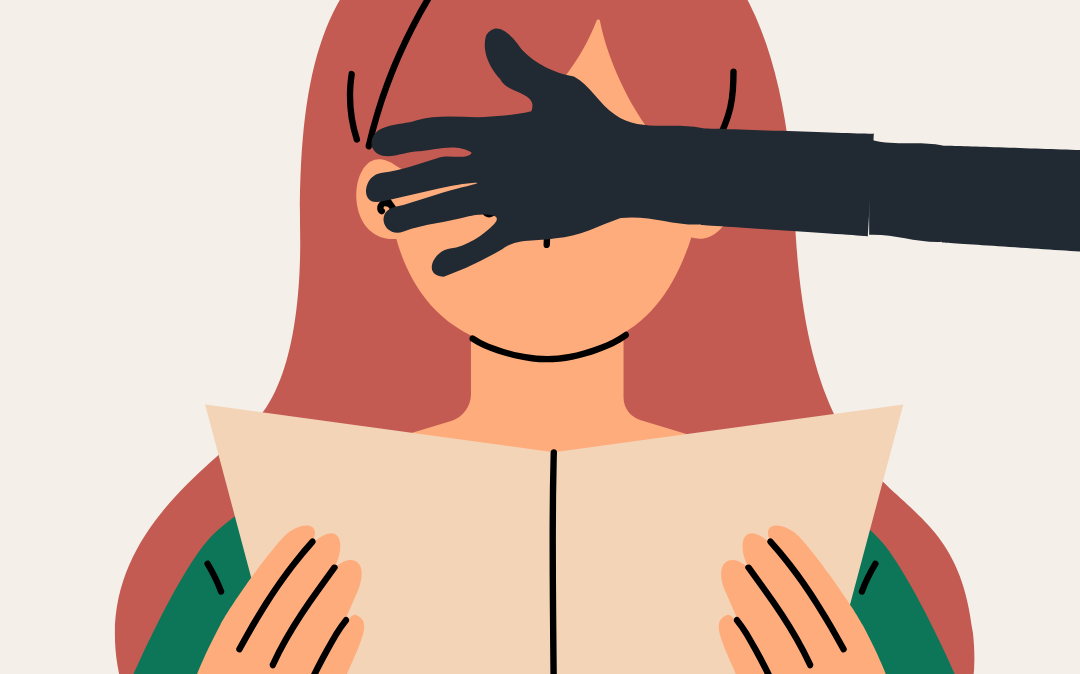
Leave a Reply